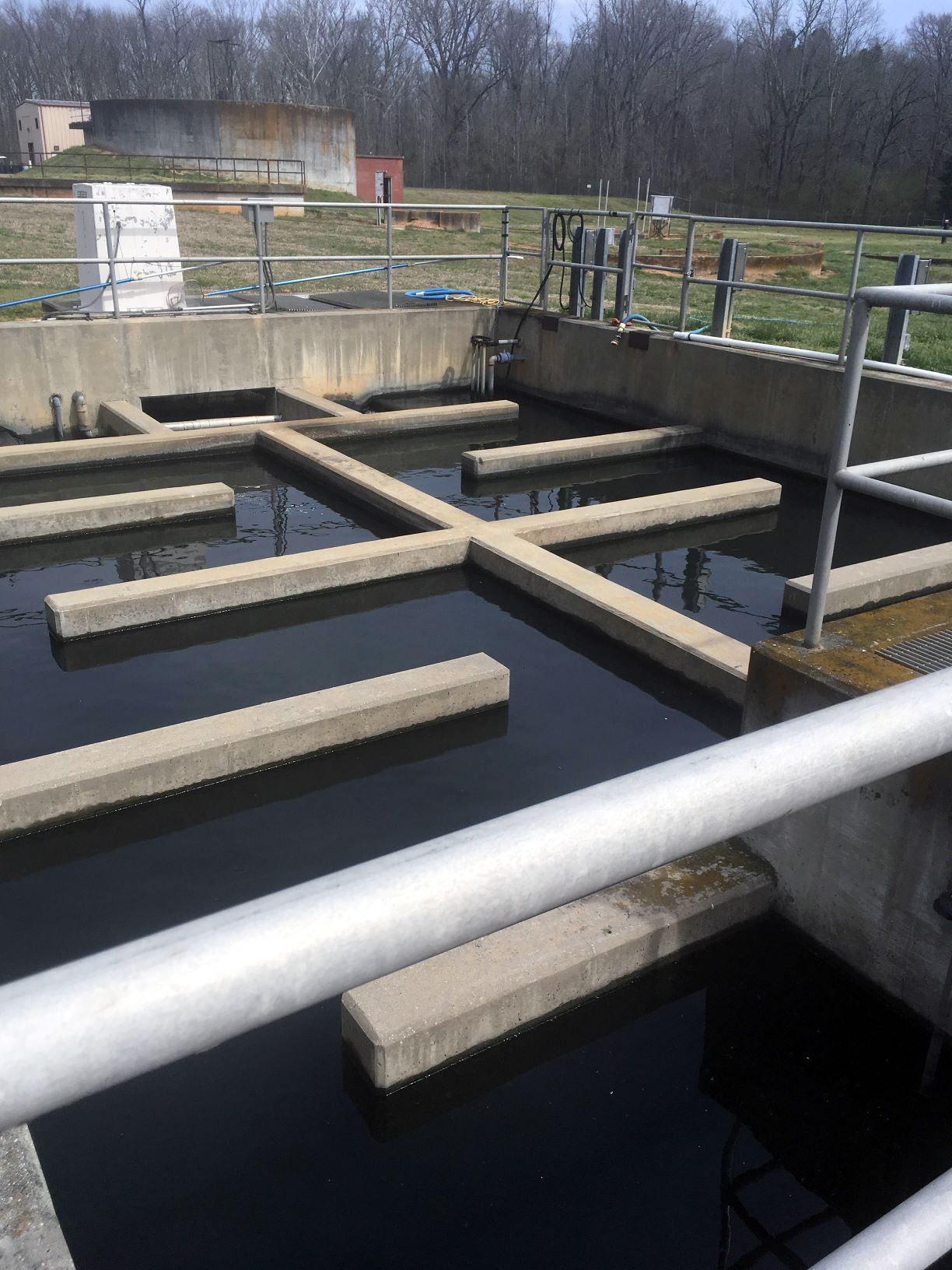By Liz Rosinski, Senior Program Manager, SC Rural Infrastructure Authority
As Henry Ford once said, "Coming together is a beginning; keeping together is progress; working together is success."
It is no secret that for nearly all of South Carolina's cities and towns, there is a tremendous need to invest in water, sewer and storm drainage infrastructure. As the costs to invest continue to increase, no single system, funding agency or local government can do it alone. The foundation for working together is generally centered on shared values and objectives. Upgrading and expanding infrastructure to protect public health and the environment, as well as attracting economic opportunities, are such examples.

Federal and state grant funding have allowed for upgrades to Abbeville's
wastewater treatment plant. Photo: City of Abbeville.
Communities that work together, whether it's helping a nearby utility system with repairs or spare parts, even in the middle of the night; providing operating and billing services; or partnering with state and federal agencies to coordinate funding for upgrades and improvements, will see results that could not have been accomplished independently.
One of the greatest challenges to make critical water and sewer improvements is identifying and accessing appropriate financial resources. Often, the revenues and expenses of a utility limit what can be accomplished. Additional funding options, such as loans and grants from state and federal agencies, allow cities to leverage local dollars to carry out large scale projects.
The South Carolina Rural Infrastructure Authority wants to put communities in a position for success. A funding partnership was formed with other federal and state infrastructure agencies in an effort to coordinate and market available resources. Known as the SC Infrastructure Funders Coordinating Committee, the group meets regularly to identify solutions to infrastructure challenges and promote sustainability.
For the City of Abbeville, a well-planned and coordinated effort was necessary to address SC Department of Health and Environmental Control requirements at its wastewater treatment plant. After several discussions and meetings about various funding sources over the past few years, the city received grant funding for improvements to the treatment plant from the U.S. Economic Development Administration and RIA. In addition, the city also received a loan from the State Revolving Fund. The partnership between these three funding sources, combining state and federal dollars, is an example of how working together can lead to a successful outcome. Construction is underway on the $4 million project, including improved aeration, mixing and upgrades to sludge handling, and is expected to be complete by March 2021.
"This has been a lengthy process which started a few years ago when the need for the wastewater treatment plant upgrades became apparent," said Abbeville's Community Development Director Mike Clary. "For small communities and utility systems, these types of funding sources are invaluable and offer us the ability to make the necessary improvements which will best serve our customers."
Several years ago, five towns in rural Hampton County joined forces to form the Lowcountry Regional Water Authority. While the systems were not initially interconnected, it became necessary for the neighboring towns of Gifford and Brunson to connect to improve their water supply capacity and reliability as well as improve their fire protection. This project was funded with grants from the RIA and the Community Development Block Grant.
For South Carolina cities and towns, there is a growing recognition of the need to work together and form partnerships with other agencies to improve the quality of life for residents and ensure a sustainable future.
The RIA assists communities with financing for qualified water, sewer and stormwater infrastructure. Approximately $100 million in infrastructure financing is available annually through its grant and loan programs. Learn more.
